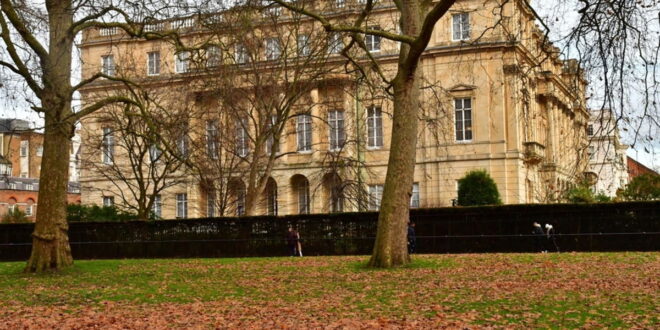Lancaster House is where the event took place. Credit: Pack-Shot, Shutterstock
The UK hosted a major summit international on Wednesday, 25 June. Its goal was to increase private sector investment in order to stop biodiversity loss by 2030.
Lancaster House is hosting a special event during London Climate Action WeekThe event brought together business leaders, representatives of environmental groups and Indigenous peoples from all over the world. King Charles attending a high-profile reception.
Global nature recovery: Funding is needed
The summit, titled ‘Nature Action: Mobilising Frameworks and Finance’, focused on how to meet the ambitious goals of the UN nature deal signed in Montreal, which aims to mobilise $200 billion annually by 2030 to restore ecosystems and fight nature loss.
This includes a target of $20 billion (€17.23 billion) in funding to developing countries by 2025, rising to $30 billion (€25.8 billion) by 2030.
Steve Reed, UK Environment Secretary, called nature the “bedrock of society”, and said that Britain is “ready to be a leader on climate and nature.”
Nature is the foundation of everything. “Without it, there is no economy and no food. There is also no health.
The agreement on key financial commitments as well as business backing
At the summit, several businesses and non-profits announced new partnerships and investments:
- Basecamp Research’s global biodiscovery system has been expanded to include Malawi and Hungary as well as the Scripps Institution of Oceanography.
- Ginkgo Bioworks – a biotech leader – has committed to future contributions to Cali Fund. The fund encourages the sharing of natural resource benefits.
- Conservation International announced a collaboration with Silvania to invest millions into nature-based solution.
- The UK-backed Financial Sector Deepening Africa will launch the Nature Finance Innovation Lab to support African-led projects.
- The Environment Bank introduced ‘Nature Shares’ – a voluntary UK investment scheme targeting woodland restoration, water quality, flood defences, and green space access.
Private investment is considered essential
Ruth Davis said that the public sector alone cannot meet the scale and scope of the problem.
We must use the private sector’s potential to promote nature restoration and to supercharge business opportunities to reap the benefits of an eco-friendly economy.
Echoing this urgency, Tony Juniper, Chair of Natural England, warned, “The web of life is in decline, and urgent action is needed… Growing nature is an integral part of growing the economy; if we look after nature, it will look after us.”
WWF warning
Tanya Steele, WWF’s UK Chief Executive, welcomed the financial pledges but warned that money alone was not enough. “Without strong policy and regulation, we run the risk of funding solutions one-handed while causing destruction the other.
With COP30 in Brazil looming this November, the UK is positioning itself as a global leader in ‘sustainable finance’, a pillar of its new Industrial Strategy. You can read about the previous summit COP29.
Browse all UK news
 Costa News Spain Breaking News | English News in Spain.
Costa News Spain Breaking News | English News in Spain.







